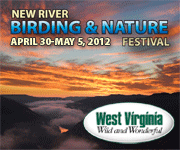Birding quietly on the shore of Lake Erie, I saw a van pull up. The birders inside pulled out their optics and pointed them in my direction. Eek! I've had that happen before and it freaks me out. I mean, I'll check to see if I recognize someone, but I don't train my scope and binoculars on a person for more than a few seconds. They just kept looking and looking.
I decided to move toward them, or at least out of the direct field of view, and was relieved to learn that they were looking at something else that, thanks to the docks, was below my field of view.
I drove over and saw a large immature female Cooper's hawk flap up from the water's edge.
She was disheveled and soaking wet. Which is a scary thing to be when it's 7 degrees, with a stiff north wind. You can freeze right to your perch if you're not careful. You have to keep moving.
I couldn't imagine that she had been bathing.
And sure enough the birders pointed me to the scene of an epic struggle, in which she had caught and held a greater scaup underwater until it drowned. Holy cow.
They said she got all wet because she kept trying to lift it out of the water. But it was too heavy for her and she eventually gave it up.
The hawk shook her plumage and left in a flurry of droplets. I felt bad for her. I hoped she'd get dry quickly.
I picked the adult drake up and was surprised at how heavy and dense it was for its size. And yet...I felt through the thick breast feathers and down to its keel, and was not surprised to find it severely emaciated, the breast muscles shrunken away from the bladelike keel bone. I doubt that a Cooper's hawk could subdue a greater scaup in good condition.
I laid the scaup out on a rock near where it had died, hoping that the hawk could return and dine on it there. It was a meal hard-won, and I hated to see the bird go hungry.
I looked at the asphalt at the lake's edge and was stunned to see patch after patch of feathers, pulled from the breasts of resting waterfowl who had gotten out of the water, laid down and frozen to the pavement. What a drag to have your coat torn off you in this weather, to have your breast exposed to the freezing water! No wonder there were so many birds dying all around.
It occurred to me that if I lived anywhere near Dunkirk Harbor, I would probably have a garage and basement full of baby wading pools and compromised ducks, geese and gulls. As I stood on the shore, I could feel the weird energy of all the birds' combined travail and suffering. It set up a fluttering in my heart, a sympathetic vibration, that imbued the entire experience with a tinge of sadness. I wanted to help them all, but I couldn't.
This is a place with its own energy, one of combined joy and loss--a clanging fracas of gulls and ducks, studded with elegiac signs of death and loss. When I'm in a place like this, I sometimes wish I could turn down the side of me that is so keenly aware of suffering. But if I could, I wouldn't be me anymore.











8 comments:
Powerful.
That explains the feathers on the breakwater near our place.
So very well put, and echoed in my own heart.
Such a sad tale of the long, cold winter.
Glad you left the duck for the Coop. That bird made a big gamble on a cold day!
To your point about the shelter, I'd have a basement full of wet, hungry, juvenile hawks in winter if I could. And if I had a basement.
Had a similar experience with a group of birders suddenly training their binocs and spotting scopes on me. I looked around and there was a short eared owl sitting in a bush about ten feet away from me! Well, duh.
so is the situation messed up because there should not be any open water there? Is the unnaturally warmed water attracting birds that would have just kept flying to somewhere else in a "normal" situation? Seems if there was no open water there would be no wet birds to freeze to the pavement. And if temps are so very low there, there should not, in the natural order of things, be open water? But I am in California, and am without direct experience. It's hard to tell -- is it ultimately advantageous to the birds to have this refuge of unfrozen water? Given how messed up everything is, climate-wise. Can we even know the answer? Heart-wrenching series here. Thank you, Julie.
This whole series of posts about Dunkirk has fascinated me. I have friends with a vacation cottage in the area and am there at least once a year--but, being the far more experienced and better trained birder that you are, you see about a thousand percent more than I do. Thanks for letting us see it through your eyes.
Post a Comment